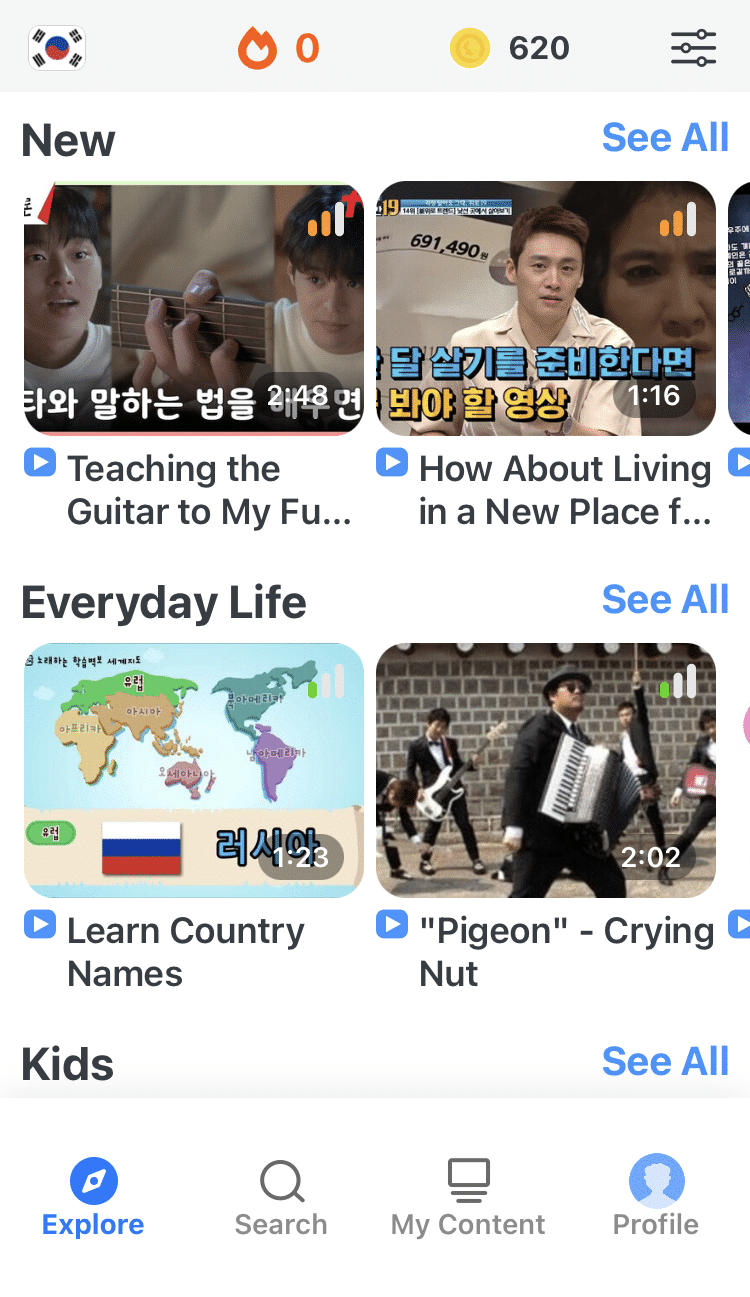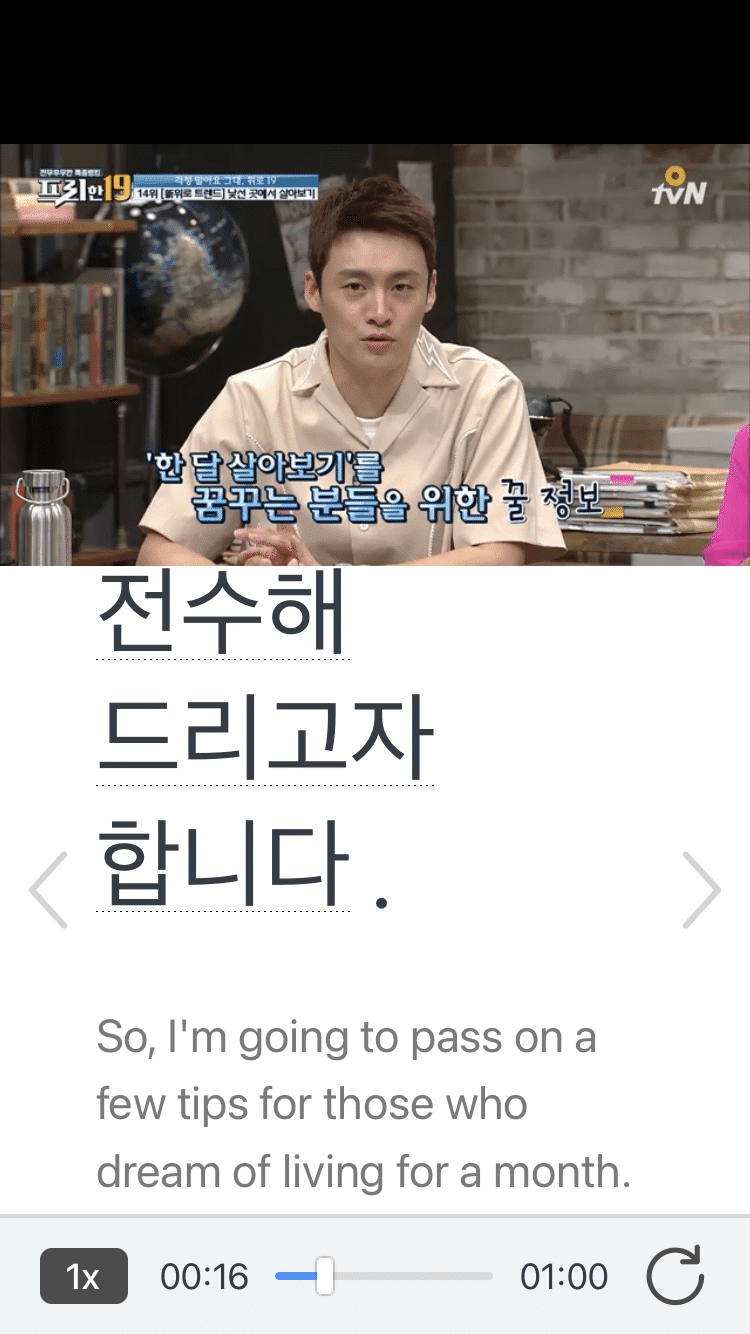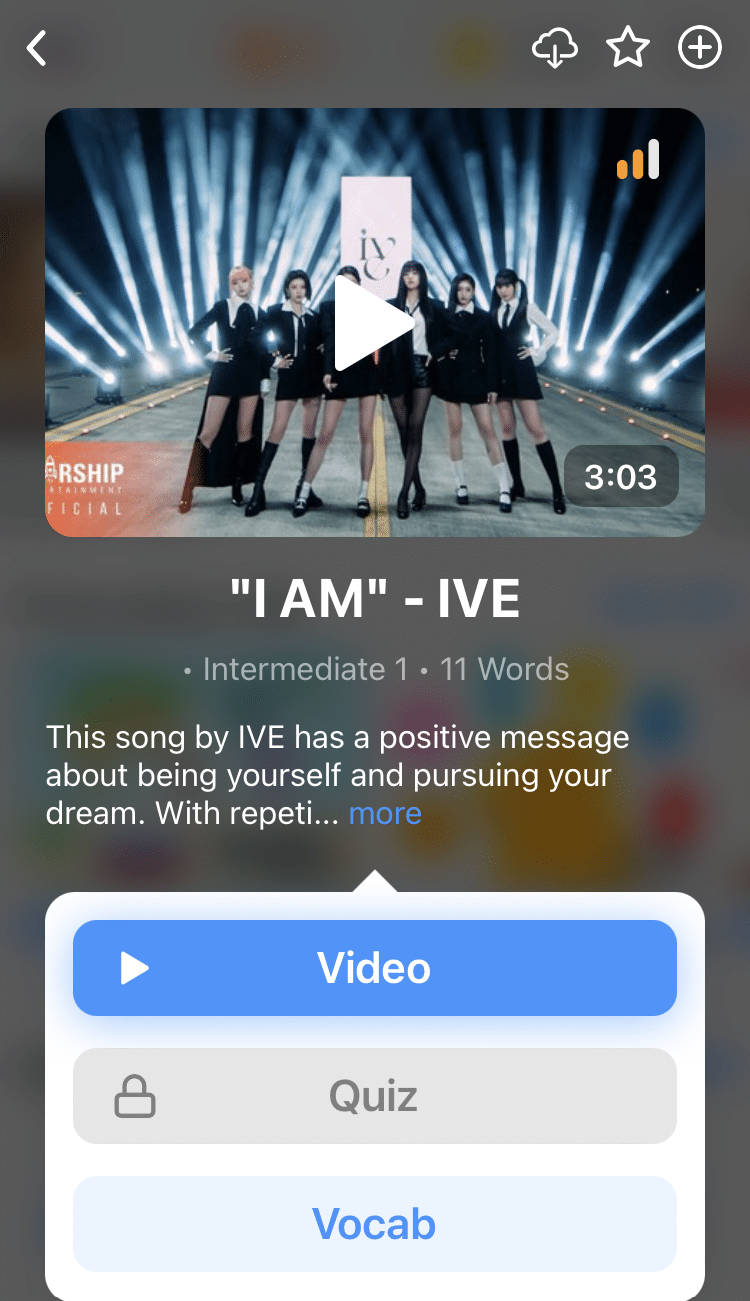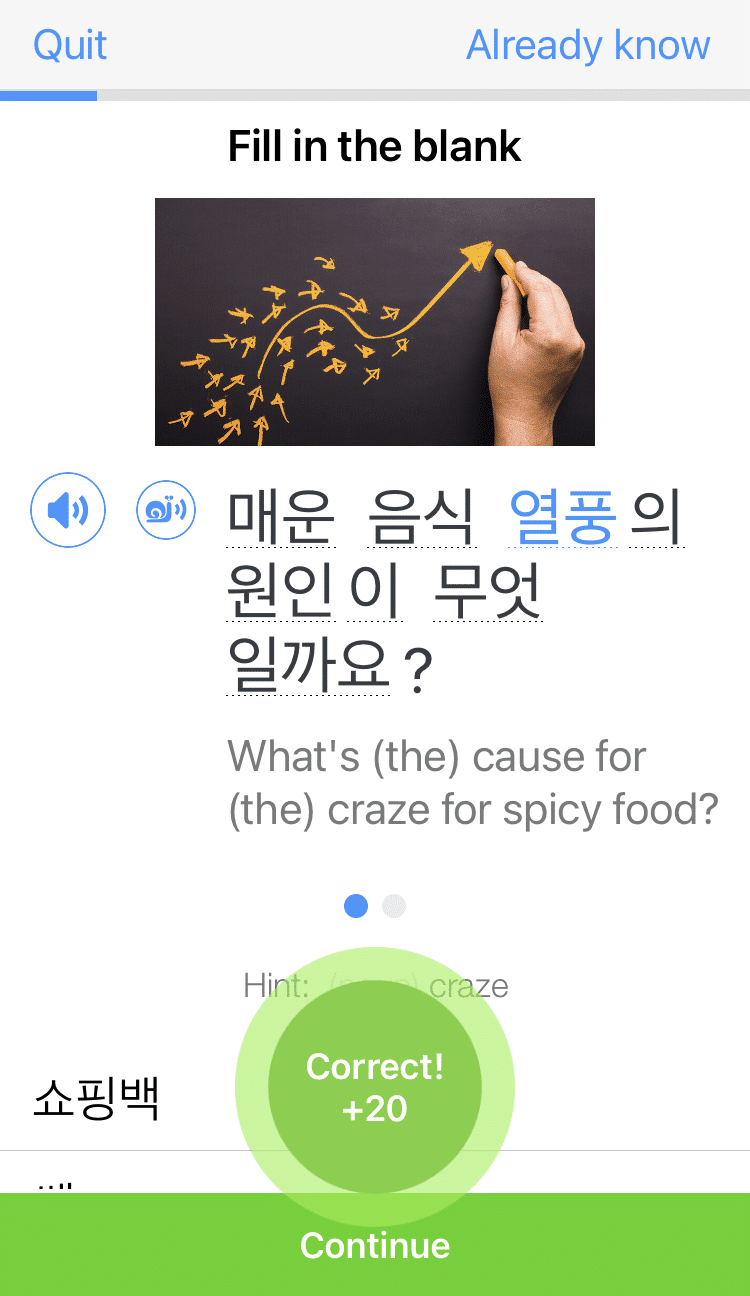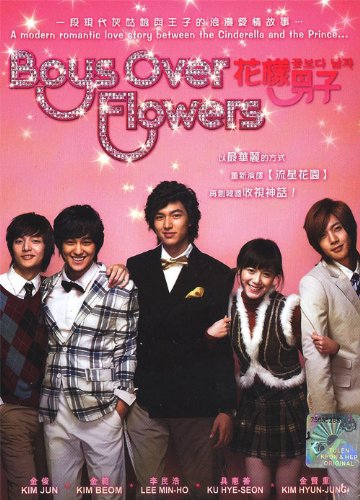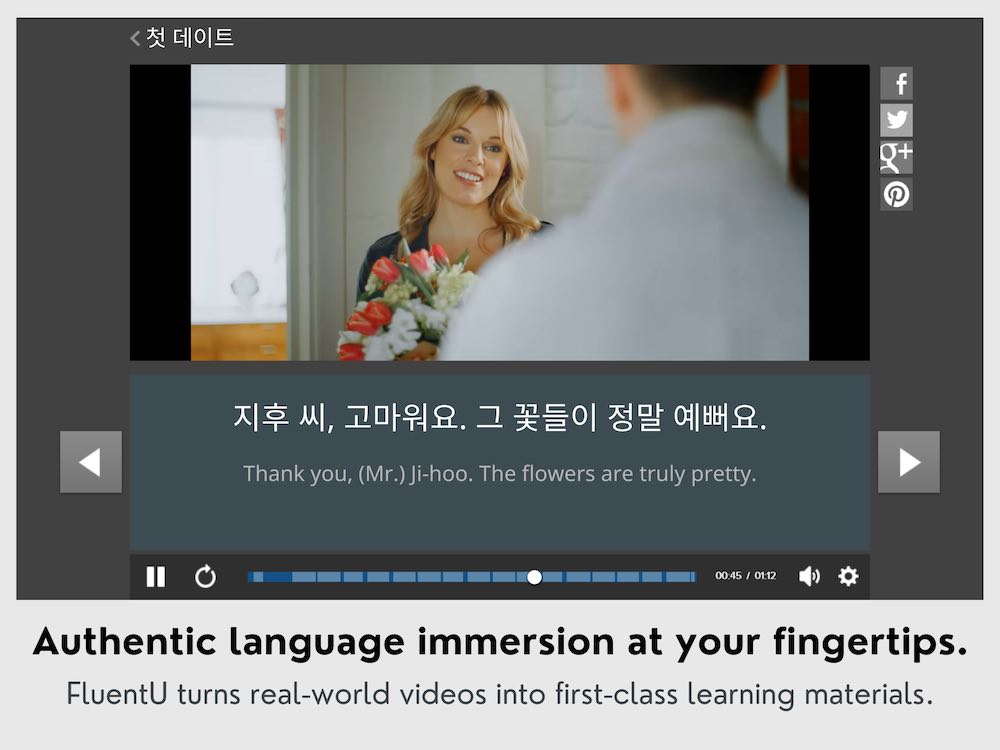
4 Places to Find Korean Drama Scripts in Hangul
K-drama scripts can teach you witty comebacks and swoon-worthy lines.
In this post, we’ll quickly teach you how to best digest these scripts so you can make the most of them.
And then we’re going to get you set up with some scripts in their original Hangul so you can start working with them and be on your way to becoming a star language learner.
Contents
- Where to Find Korean Drama Scripts in Hangul
- How to Use a Hangul Drama Script to Learn Korean
- And One More Thing...
Download: This blog post is available as a convenient and portable PDF that you can take anywhere. Click here to get a copy. (Download)
Where to Find Korean Drama Scripts in Hangul
Note that the files you find from all these sources will probably be “.hwp” (Hangul Word Processor). To convert them to a different file type and get them to display properly, you can use a free online service like this one.
1. Naver
Naver is Korea’s version of Google. It’s a search engine.. and more! There’s a whole array of content on the Naver platform—blogs, online communities, dictionary and even webtoons—all finely tailored to the native-speaking population.
Perform your search as you would on Google. At the homepage’s search box, type in the title of the drama you’re looking for, in Korean or English, and see if you’re in luck. Add “대본” (daebon) to the drama’s title. It’s Korean for “script.” (If you’re having difficulty navigating the Hangul interface, don’t worry, because Google Translate will have your back and can render the text into English.)
There are native speakers who have collected scripts from some of their favorite dramas and shared them on their Naver accounts. Korean language learners can pick up content for favorites like “Lovers in Paris” and “Attic Cat.”
“Lovers in Paris”
Available on: Viki
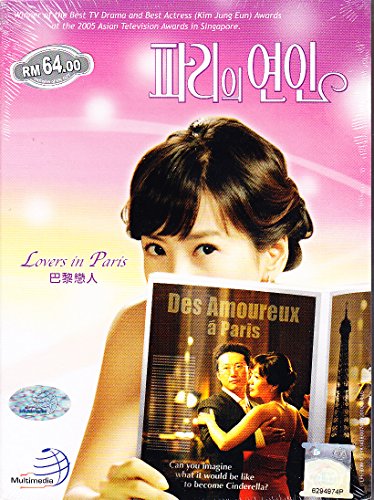
Well, that was Paris. Now that they’re both back in Korea, it seems that European romance kindled more genuinely than they anticipated.
“Lovers in Paris” is a multi-awarded drama penned by the illustrious and brilliant Kim Eun-sook. Language learners who study the script will learn what smooth conversations and dialogues look like on paper. This is a perfect study for intermediate language learners looking to improve their vocab and diction.
2. Daum
Together with Naver and Nate, Daum completes the triumvirate of Korean search engines out to challenge the dominance of Google. Owned by the Kakao Corporation, Daum also has its own range of services—from blogs to messaging, news, forums and e-commerce.
Search Daum as you would Google and see if your favorite drama’s script is available.
The download-worthy titles you’ll find on Daum include “Boys Over Flowers” and “City Hunter.”
“Boys Over Flowers”
Available on: Netflix | Viki | DVD
F4 is a clique of the sons of uber-rich individuals in South Korea. Basically, it would be like if Bill Gates, Warren Buffett, Jeff Bezos and Mark Zuckerberg had sons who were all of the same age, all went to the same high school and were all incredibly hot. So yeah, totally possible premise.
F4 tears through their elite high school, bullying and destroying the lives of whoever gets in their way. They have the run of their world. That is, until Geum Jan-di, the daughter of a lowly laundromat owner, stands up to them.
She earns the ire, and later, the admiration, of the group’s leader, Gu Jun-pyo. He falls for her, and now the tables are turned. Let’s see if this wealthy kid wins the heart of a girl who only has loathing for rich folks.
Language beginners can take a lot from this 2009 South Korean blockbuster. The dialogues are really very easy to learn. The lines of the script are simple, sharp and quick. They’re perfect for beginners looking to build a wealth of Korean vocabulary.
“City Hunter”
Available on: Viki
Lee Yoon-sung is the new hotshot recruit of the “Blue House,” South Korea’s seat of government. He comes in as an IT expert who trained in the United States. But he’s not on the job just to track VPNs. He’s the “City Hunter.”
The City Hunter is out to exact revenge for a betrayal that happened decades ago. In his crosshairs are five corrupt politicians whose decisions directly resulted in the death of his father.
Of course, serving revenge won’t be that easy—especially when there’s a pretty love interest who throws a wrench in the works.
This Korean drama, adapted from a Japanese manga, is perfect for language beginners. The dialogues are very simple and pretty straightforward. So print that script now and have a go!
3. Google
Of course, the world’s trusted indexer of information is not to be outdone. A basic Google search can fetch you some of your favorite K-drama scripts.
If you don’t know the title of your drama, or if your heart isn’t set on a particular one, maybe you can use Dramabeans to track down what you’re looking for. (Dramabeans used to be a go-to place for Hangul scripts, but their links have gone AWOL.)
Copy and paste the title (Korean or English) into the search bar. Don’t forget to add “대본” to the drama’s title to remind Google that you’re interested in scripts. Downloadables you can find this way include “W” and “All In.”
“W”
Available on: Viki
Kang Chul is an Olympic champion shooter who brought fame and glory to Korea in the 2004 Athens Olympics. But his perfect life is soon totally upended when every member of his family is callously murdered.
Being the sole survivor, he’s immediately spotlighted as the prime suspect. People believe him to be the killer and he rots in prison.
Years have passed, and a curious series of events have come to light that prove his innocence. Gaining his freedom, Kang Chul is hell-bent on making himself wealthy and successful, and finding out who murdered his family… and why.
And oh, by the way… Kang Chul is really just a character in a webtoon. But he doesn’t know it yet. Will somebody from the real world set him straight? Find out.
This drama is suitable for intermediate and advanced language learners. Be sure to follow the script carefully and notice which things are happening in the real world and which things are happening inside the webtoon.
“All In“
Available on: Amazon
A wedding is about to take place… only not so much, really. The groom just caught a bullet in his chest. And he’s about to spend the next eight months with amnesia. So begins this fast-paced, adrenaline-pumping TV series.
This one has all the elements of a South Korean classic: murder, amnesia, rivalry between friends, rich-poor dynamics, forbidden love and, of course, a nun who becomes a casino dealer.
It’s a love story set in the high stakes world of gambling. Advanced language learners can benefit from looking at how different emotions are elicited in various scenes. For example, how do the two protagonists, Kim In-ha and Min Su-yeon, talk to each other in a way that reveals love and sublime yearning? How does the writer heighten the excitement in scenes that depict high stakes betting? What words, expressions or lines are used?
From start to finish, this drama is a masterclass in the use of language and emotions.
4. KBS World on YouTube
Last but not least, there’s YouTube.
You can easily download the subtitles from YouTube videos to make your own printed drama scripts. Here’s how.
Click on a video that has transcriptions. Next, locate the triple dot icon found below the video’s title. (Yep, those three little circles beside “Save.”) Click on it and choose “Open transcript.” This will open a transcription box. At the top of this box, there’s another set of three dots. Click on it and choose “Toggle timestamps.” This takes out all the messy time marks on the transcription.
Below the transcription box, you can choose the language for the transcript. Choose “Korean.”
Copy and paste to a word processing program. Print and enjoy!
One of Korea’s biggest broadcasters, KBS World, has an awesome YouTube channel. Here you’ll find the latest TV shows, concerts and, of course, dramas from KBS. Take a look at “The Man in the Mask” and “Who Are You.”
During the day, Ha Dae-chul is a diligent and no-nonsense prosecutor, working hard to ensure that no criminal escapes the long arm of the law. At night, he dons a mask and becomes a vigilante visiting crooks who think they can go on with their lives of crime. He scares them into reform, hoping that they straighten up their acts.
Dae-chul is happy to live this uncomplicated double life and wants to hide his midnight identity from everyone—especially Yoo Min-hee, a detective from the violent crimes division, who he’s got the biggest crush on.
The problem is, she’s slowly connecting the dots and zeroing in on Dae-chul!
Intermediate language learners will find the script for this drama helpful in building fluency. There’s a mix of both basic and more challenging stretches of dialogue. So it’s best to heed the mantra “Print it!”
Of course, a drama script marathon wouldn’t be complete without twins!
“Who Are You” is a drama about Go Eun-byul and Lee Eun-bi, who got separated via adoption. Eun-bi lives a simple and cheerful life in South Gyeongsang province. Eun-byul, on the other hand, resides in Seoul and goes to the most prestigious private high school in the city.
On an out-of-the-city school field trip to the very same town where her lost sister lives (because yeah, dramas are like that), Eun-byul mysteriously disappears.
Ten days later, a girl who looks exactly like her surfaces. She’s hurt and suffering from amnesia. Is it still Eun-byul, the popular girl from her high school, or is it her twin sister? Find out.
Beginners and intermediate language learners will find this script suited to their level. The language used is simple and the lines are very basic. Pay careful attention to how the writer differentiates between the twins through diction and characterization.
How to Use a Hangul Drama Script to Learn Korean
Print it
Sure, this will initially be time-consuming. But if you want to study scripts effectively, don’t be content with just looking at PDFs. You’ve got to have these things printed. There’s really nothing like having a copy in your hand that you can use to write your notes and comments on, highlight lines or draw doodles and mnemonics.
Take the time to make yourself a hard copy. It’ll be so worth it!
Divide the episode into scenes
These scripts can be long. A single episode can run you 30-40 pages.
Nobody expects you to study the whole episode in a single sitting. So divide the task into manageable bites by sticking to individual scenes.
You’ve printed the thing, so you can go deep. Read the scene repeatedly. Imagine the interaction. Read aloud. And if possible, memorize the lines. Go over a single scene again and again till you know it like the back of your hand.
Act it out
Yes, you can familiarize yourself with the dialogue, read aloud and follow along with the drama itself. You can even memorize the entire script. But if you really want to fully engage, you have to go above and beyond.
Get into the shoes of the characters and try acting out the scenes. Pick your favorite character and deliver their lines. Feel what they’re going through. Did they just get rejected by their first love? Then deliver the lines accordingly.
Doing this will give range not only to your acting chops, but more importantly, to your pronunciation and communication skills.
Search the script for vocabulary
One of the advantages of having the script printed out is the ability to circle, underline or highlight important words or phrases that you think will be useful in everyday communication. Then, on a different sheet of paper, you can use your notes to manually create a vocabulary list.
Do further research for your words/phrases. Read up on them and write down as much information as you can about them. Note down synonyms, usage examples or idioms that employ the vocab.
A language learning program that makes use of subtitles and transcripts will be especially valuable in helping you make full use of your physical script. FluentU is an example of such a program.
FluentU takes authentic videos—like music videos, movie trailers, news and inspiring talks—and turns them into personalized language learning lessons. You can try FluentU for free for 2 weeks. Check out the website or download the iOS app or Android app. P.S. Click here to take advantage of our current sale! (Expires at the end of this month.)
Try to come up with your own version of a scene
Advanced Korean language learners ought to stretch their linguistic muscles and think up new ways that a scene/dialogue can unfold. You can change as little or as much as you want.
Writing your own mini-scene or changing some elements from the original allows you to practice wielding the language for communicative purposes—making Korean alive and real for you. This exercise will supercharge your comprehension.
So that rounds up our post on Korean drama scripts. The ball is now in your court. No more excuses. You get to decide.
You decide the effort you’re going to give and the time you’re going to invest in learning the language. All I can tell you is… it’ll all be worth it!
Have fun!
Download: This blog post is available as a convenient and portable PDF that you can take anywhere. Click here to get a copy. (Download)
If you enjoyed this post, you're already halfway to having the time of your life learning Korean with FluentU!
FluentU makes it possible to learn with K-pop videos, funny commercials, entertaining web series and more. Just a quick look will give you an idea of the variety of FluentU videos on offer:
FluentU really takes the grunt work out of learning languages, leaving you with nothing but engaging, effective and efficient learning. It's already hand-picked the best videos for you (which are organized by level and topic), so all you have to do is simply choose any video that strikes your fancy to get started.
Each word in the interactive captions comes with a definition, audio, image, example sentences and more.
Access a complete interactive transcript of every video under the Dialogue tab, and easily review words and phrases from the video under Vocab.
You can use FluentU’s unique Quiz Mode to learn the vocabulary and phrases from the video through fun questions.
FluentU keeps track of what you're learning, and tells you exactly when it's time for review, giving you a 100% personalized experience.
Review sessions use video context to help embed the words in your memory.
Start using the FluentU website on your computer or tablet or, better yet, download the FluentU app from the iTunes or Google Play store. Click here to take advantage of our current sale! (Expires at the end of this month.)
And One More Thing...
